As parents, most of us have heard that the middle school years are filled with teenaged angst and struggle. Middle schools are notorious for being the place no one wants to send their child. Why is that? The answer is in the brain.
In the article at Psychology Today by Jenni Ogden, Ph.D., entitled “Brilliant, Brazen, Teenage Brains,” the teenager is described as having “rude, moody, disorganized, risk-taking, impulsive behaviors.” She goes on to qualify that teens are capable of moderating their behaviors, “It just takes them a lot more effort to do so.” She then concludes that “The brain evolved in this way for a good reason. Teenagers need to take risks in order to make the leap from home and reliance on parents to independence. At this stage, their primary alliance shifts to their peer group, the most important social group for young adults.”
 I have a different perspective that sifts out what the brain studies are showing from how our culture of school attendance supports our culture’s subconscious focus on family separation and peer approval. So let me take school out of the equation to share my experiences as to what is going on and how we can best support our 11 to 13 year olds during this crucial stage of growth.
I have a different perspective that sifts out what the brain studies are showing from how our culture of school attendance supports our culture’s subconscious focus on family separation and peer approval. So let me take school out of the equation to share my experiences as to what is going on and how we can best support our 11 to 13 year olds during this crucial stage of growth.
Some time between 11 and 13 years old, what I refer to as a “brain shift” happens. A person moves from a child’s view of concrete, all-I-can-see-is-my-world-right-in-front-of-me, to an adult’s view of abstract, I’m-a-little-person-in-a-big-world, and how do I fit in and find my place. This is a huge shift in perspective and it begins what I call a starting over time. From my experience, childhood is from 5 to 11, and young adulthood starts between 11 and 13 in relation to this brain shift. You may notice, as I did, that your children were progressing from little people who didn’t have a lot of ability to a more competent young child by about 10 years old. It was also the time we were strengths-based and actively sought out each child’s gifts. During this seemingly self-centered time, it’s the perfect time to figure out one’s strengths, interests, and gifts.
And then the 11 to 13 year brain shift happens, and it’s like your previously competent young child becomes unable to do anything anymore. No wonder these young people at this age are rude and moody. You would be too if you were going through such dramatic changes. The traditional focus found in school on those less matched to the environment can run into huge problems at this time. As a young person’s “eyes are opened” to their place in the greater world, if they don’t have a foundation of strengths to rely on to balance out their view of themselves and their weaknesses, they can crumble. Think about it. Let’s say you were labeled dyslexic, and struggled during the childhood years, were put in remediation or special programs, and spent most of your time in your weaknesses. Once this awakening occurs, how can you view your place in the world in a positive way if you’ve never developed your strengths? Rude and moody may only escalate to deal with this sudden harsh reality.
As an example of someone who has diagnosed struggles (high functioning autism), but grew up in a strengths-based learning environment, I’ll share my builder son’s story. Though we worked from time to time on his language skills and offered some social opportunities, my builder son spent a lot of his time on  his strengths of building things, anything. At around the time he learned to read, about 10 to 11 years old, I remember him stating, “I don’t know what I want to be when I grow up. There are so many choices. Do I want to be an engineer, a computer programmer, a LEGO builder, a train engineer…I just don’t know; I have so many talents.” Yes, that was a self-centered view on himself as he had yet to encounter the brain shift. When it happened around 12 years old, I equally remember some of his questions: “I’m not that good at spelling, am I?” (No, would you like to work on that? Yes!) “Why do the guys not invite me to play with them?” (Because you always ignored their previous requests. Are you interested now? I can tell you what YOU can do to change that. Yes!) As his realizations of his weaknesses and how he needed to find his place in the world was revealed to him through his brain shift, his strengths in his gifts and interests sustained his balanced outlook as he continued to develop each.
his strengths of building things, anything. At around the time he learned to read, about 10 to 11 years old, I remember him stating, “I don’t know what I want to be when I grow up. There are so many choices. Do I want to be an engineer, a computer programmer, a LEGO builder, a train engineer…I just don’t know; I have so many talents.” Yes, that was a self-centered view on himself as he had yet to encounter the brain shift. When it happened around 12 years old, I equally remember some of his questions: “I’m not that good at spelling, am I?” (No, would you like to work on that? Yes!) “Why do the guys not invite me to play with them?” (Because you always ignored their previous requests. Are you interested now? I can tell you what YOU can do to change that. Yes!) As his realizations of his weaknesses and how he needed to find his place in the world was revealed to him through his brain shift, his strengths in his gifts and interests sustained his balanced outlook as he continued to develop each.
Middle school isn’t set up to understand and support this brain shift need for young people. In fact, what happens in the middle school at this point regarding learning? They are asked to have more responsibility in their work, transitions, and focus because aren’t these young people supposed to progress even more?  Yes and no. First, they have to navigate this huge shift in perspective initiated by the brain. And that often entails a bit of a stand-still, or what may appear as a regression and what is being said as “disorganized.” But, it’s not as it seems. They are closing the chapter on childhood and the brain’s view on that, to entering adulthood and the new view on that. They need adult mentors that show them how to navigate this stage. They may have been able to be organized to a child’s level, but add in the overwhelming feeling of the pressure of their place in the whole world, focus goes out the door temporarily as they get their bearings.
Yes and no. First, they have to navigate this huge shift in perspective initiated by the brain. And that often entails a bit of a stand-still, or what may appear as a regression and what is being said as “disorganized.” But, it’s not as it seems. They are closing the chapter on childhood and the brain’s view on that, to entering adulthood and the new view on that. They need adult mentors that show them how to navigate this stage. They may have been able to be organized to a child’s level, but add in the overwhelming feeling of the pressure of their place in the whole world, focus goes out the door temporarily as they get their bearings.
I went right back to full support with my young person as he relearned how to handle increased responsibilities, a system of organization that worked for him, and a higher level of collaboration with his new awareness. This was the focus for the first of the three year period, while the second year showed faltering steps of independent abilities with consistent tweaking and support from me, while the third year often ended with new confidence and abilities. The exciting result as they reached this higher level of competency (after appropriate supports) was watching their gifts and talents (that they needed to rely on during this time) flourish in the next stage (14 to 16) as they learned to use them in the bigger world in a more purposeful way.
![3141279597_84925275cb[1]](https://www.therightsideofnormal.com/wp-content/uploads/2013/01/3141279597_84925275cb1-225x300.jpg) Throughout this stage, there’s a strong draw for these young people to figure out their place in the world by reaching out in it. They are craving an adult mentor. When I looked up some of the roles of a good mentor, one of those I found was that a mentor makes it safe to take risks. Does it sound like a contradiction? Not when you see what that looks like in practice! I found my children were on the one hand, scared to death what these feelings were pressing them to want, yet needing to put themselves out there. Now was the time to find good fit volunteer opportunities, co-op classes, interest-based clubs, self-business ventures, blogging, etc. Some of the things I remember various of my children trying as their first risk: attending a one week teen camp (my artist son), volunteering at the zoo (my writer daughter), working for a graphic artist (my builder son), started trading and selling ceiling fans (my electronics son), attending a high adventure summer camp program (my theater son), and flying an airplane (my dynamo son).
Throughout this stage, there’s a strong draw for these young people to figure out their place in the world by reaching out in it. They are craving an adult mentor. When I looked up some of the roles of a good mentor, one of those I found was that a mentor makes it safe to take risks. Does it sound like a contradiction? Not when you see what that looks like in practice! I found my children were on the one hand, scared to death what these feelings were pressing them to want, yet needing to put themselves out there. Now was the time to find good fit volunteer opportunities, co-op classes, interest-based clubs, self-business ventures, blogging, etc. Some of the things I remember various of my children trying as their first risk: attending a one week teen camp (my artist son), volunteering at the zoo (my writer daughter), working for a graphic artist (my builder son), started trading and selling ceiling fans (my electronics son), attending a high adventure summer camp program (my theater son), and flying an airplane (my dynamo son).
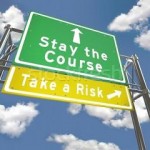 I’ve noticed many home/unschoolers ask to go back to school at this age. It’s not necessarily about going to public school versus homeschooling. It’s their attempt at feeding the need to put themselves out there. Instead of school, it can be a cue to find and offer higher risk community opportunities. As for those attending school, there is often no opportunity to extend outside the four walls of school, so they focus their risk-taking needs of finding their place in the world through experimentation of alcohol, drugs, sex, fighting, defying authority, etc. What other choice are we leaving them? No wonder middle schools are such messes! It’s not set up to support their natural developmental needs at that stage.
I’ve noticed many home/unschoolers ask to go back to school at this age. It’s not necessarily about going to public school versus homeschooling. It’s their attempt at feeding the need to put themselves out there. Instead of school, it can be a cue to find and offer higher risk community opportunities. As for those attending school, there is often no opportunity to extend outside the four walls of school, so they focus their risk-taking needs of finding their place in the world through experimentation of alcohol, drugs, sex, fighting, defying authority, etc. What other choice are we leaving them? No wonder middle schools are such messes! It’s not set up to support their natural developmental needs at that stage.
Let’s conclude by talking about that conclusion that these young teens are going to naturally pull away from their parents toward their peers as the most influential figures in their lives. After reading my post, I hope you can see the flaw of that reasoning. What these young teens are doing are trying to figure out their place in the greater world. When you’re in school, what has our society created that to be? Their peers! That’s how we’ve set up our culture. But, if you take school out of the equation, you may find a very different pattern. For my children, since they had a foundation of strengths and a development of a passion, they entered the stage with some understanding of self. I mentored them in finding safe ways to take risks in finding their place in the world. That included with their peers, in their communities, in their church, and in their families. They valued the mentoring from trusted adults who listened, shared strategies, and provided encouragement.
 I watched the first show of the new season of The Biggest Loser last night. They brought in three young people as “ambassadors of childhood obesity” in helping reach that population. The young people were aged 13, 13, and 16. For the first challenge of the season, the young people were harnessed above the ground to direct the adults to where the hidden cards were buried below. The adults had to rely on and trust in the children completely. One of the 13-year-olds said (paraphrasing), “This was so much fun. The adults had to listen to me. Adults never listen to kids, so I felt like an important part of the team.” This is what I was referring to in my post regarding the i-Phone contract mother who claimed to be on the same team as her son. Listening to, respecting, and trusting are all ingredients of truly being considered valuable. That’s what the stage of middle school through brain studies is really showing…these are young people trying to figure out their path to being a valued member of society.
I watched the first show of the new season of The Biggest Loser last night. They brought in three young people as “ambassadors of childhood obesity” in helping reach that population. The young people were aged 13, 13, and 16. For the first challenge of the season, the young people were harnessed above the ground to direct the adults to where the hidden cards were buried below. The adults had to rely on and trust in the children completely. One of the 13-year-olds said (paraphrasing), “This was so much fun. The adults had to listen to me. Adults never listen to kids, so I felt like an important part of the team.” This is what I was referring to in my post regarding the i-Phone contract mother who claimed to be on the same team as her son. Listening to, respecting, and trusting are all ingredients of truly being considered valuable. That’s what the stage of middle school through brain studies is really showing…these are young people trying to figure out their path to being a valued member of society.
Question: What changes are you noticing in your 11 to 13 year old? How does that relate to the ideas in this post?


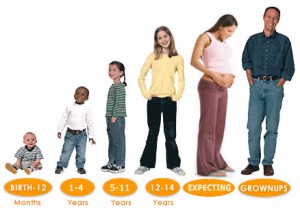
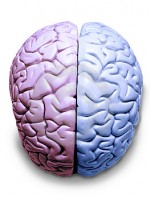

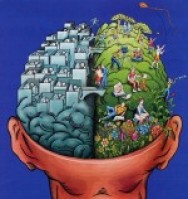
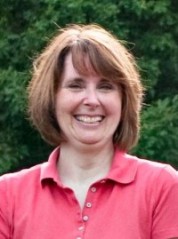
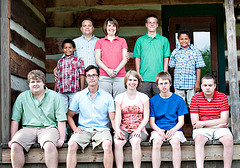
5 responses to “The Middle School Teen Brain Shift”